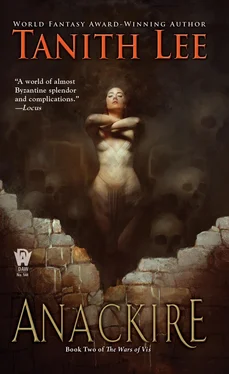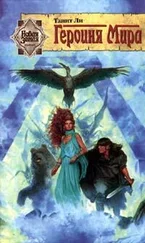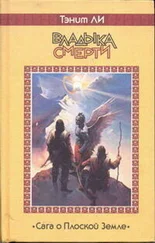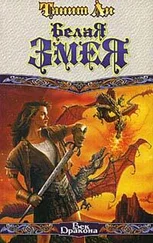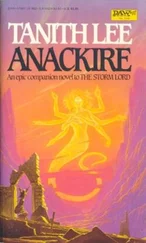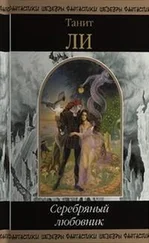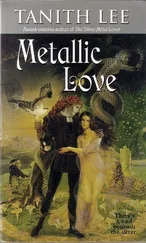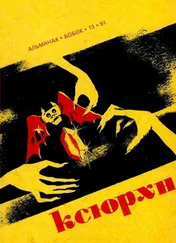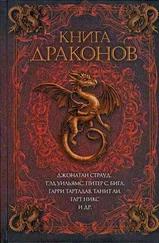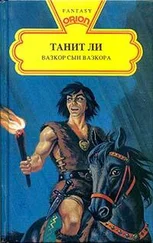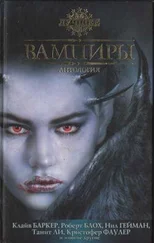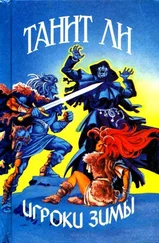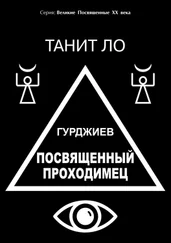And the soldiers, catching sight of him, trained to it now, shouted and banged their shields.
The racket swarmed in Kesarh’s skull, but he moved about to welcome the boy—who was not even that—the one mistake that had been made and which could not be rectified till Karmiss.
Emel gazed up, too frightened to avoid the hypnotic eyes of Kesarh. The hand that touched Emel’s shoulder had lost none of its physical power. It had lifted him to horseback and into chariots, it had guided and led him. Once, in winter, when his own child’s hands were frozen, Kesarh had returned them to life, chafing them in his own. Emel had worshipped Kesarh. Kesarh who wanted to murder him.
Kesarh seemed to peruse him now, stern, compassionate. Then he turned to the soldiers. He said to them, the words ringing across the square: “This is indeed Emel. My King’s son, and my King.”
And then, as they bellowed all over again, Kesarh knelt to him.
It was not like Raldnor, but solely like that other time, at Istris in the map chamber. The kneeling man. But the sunset had grown thicker, more like blood now on the shining black of the hair, the bloody garments.
Emel twisted to face the soldiers, and reckoning he was about to speak to them himself, a unique event, they hushed each other and abruptly all the cacophony was gone, leaving just a hollow of ominous red light.
Emel stared at them. They had cheered him, too, had always cheered him. They liked him—it must be so. And there were many of them. And Kesarh, his enemy, was only one.
The desperate solution came to Emel suddenly. He knew he had mere seconds to implement it. He flung up his arms, and screamed at them in his high girlish voice. “It’s lies! He’ll kill me! Kesarh will kill me! Don’t let him—please save me—help me—”
Over and over, the same phrases spurted forth. The shrill wailing penetrated, its anguish apparent even where language was obscured. The front rows of Karmian soldiery reacted, a murmur, sulky and unsure, questions and denials, passed backward. It might have burnt itself out. While Emel’s throat was not strong, he could not have managed very much more.
But Kesarh had risen to his feet. Looking down at this screeching eunuch, his cold blood seemed to boil. “Be quiet,” Kesarh said. But Emel did not heed. He cowered away and began to bawl, sobbing and flailing.
There was malice in it too. It was malice which had lent Emel the bravado. To damage the ones who betrayed him, even as he tried to escape them. And because of this, when Kesarh reached out again to grasp him, hold him still, Emel rounded, snarling through his hysteria. And Emel too reached out, beating and clawing at Kesarh to keep him off.
Emel did not know about the tiny festering agony of the wound. If he had known, instinctively, he might have tried to avoid it.
But the attack—which from blow appeared vitiated, nothing—came down repeatedly there, and exactly there. The pain exploded through sinews, into the pit of an arm, the breast and throat, the vitals. And seeing Kesarh recoil, Emel lashed out again and again.
The soldiers were in fact chuckling, some of them, not realizing quite what went on, finding the spectacle funny; the feeble smitings of their boy King. Then Kesarh struck him.
Probably, they expected a slap. It was not a slap.
They were all fighters, and however sloppy they had become, most of them that saw it saw too the blow was enough to break Emel’s neck. And that it did break it.
Like something falling to pieces, the boy collapsed and toppled all the way down the stair, and into the front rank of soldiers at the bottom. Who leaned over him and tried him, and then let go, muttering. It had a different timbre now, this noise, and it spread rapidly.
The light was almost gone. Last dapplings of red still lit up the murderer on his self-chosen stage of steps.
He did not move or speak. It was not the pain or the fever or the rage which had changed him into stone. Perhaps irony had some part in it. He had used death so often and so adroitly in private. Yet he must have known, in the most public fashion possible he had just now written out his epitaph.
Dhaker, THE OPAL-EYE, directed his eternal wink through the night toward the shore, and said, “Something burns.”
He was correct in this.
The three Zakorian galleys, letting out sail to a shoreward wind, circled nearer. Before too long, the distant flashing of flames became self-explanatory. Most of the port of Amlan was on fire.
Outriders of the navy of Free Zakoris, Dhaker’s triad had kept the reavers’ agility. They had a diplomatic reason for going in, which was that Kesr Am Karmiss, ally of King Yl, had patently joined battle with the rebel Karmians in Lan. But the long hot winter prowling Thaddra, and Dorthar’s barren, guarded north, had put them in key for a fight. And doubtless there would be spoil, a city of it, with such drink and women as Karmiss had not consumed.
The boats swam to land, avoiding the Karmian anchorage, which seemed, however, deserted. When they got ashore, most of the battle in the port was over; only bodies, the odd looter, the fires, remained. The Amlans were gone, too. Off into the hills, likely. Hills and mountains were the soul of Lan.
Dhaker organized his men. A company stayed to scour the port, and keep faith with their own ships. The rest took off along the Amlan road.
Nearer and later, the glow over the city wall gave sign of some incendiary action also here. Their mission gradually altered focus.
Free Zakoris hated Kesarh, despite any treaty. He had the yellow man’s blood, and besides had spent his youth and young manhood humiliating her. Now he might fall into Free Zakorian hands. Yl would be interested no doubt, to get such a prisoner, while Karmiss and the east would loosen on the tree.
It was the Shansarian troops who began the riot in Amlan. Their motive was unvarnished: Emel was theirs. When Kesarh was taken, albeit like a felon, into the palace, they had called council. The time of soldierly governance had gone to their heads, and they demanded the slayer of their rightful king be given back to them. Feeling scaled high. They cursed Kesarh. He was Vis, scum, a black jackal. This led to a personalization of insults all round. The Vis soldiery, who had also enjoyed the autonomy, not only of Lan, but in Kesarh’s Visian Karmiss, took exception. Others came in on every side. There really was no discipline left in Amlan. Raldnor and his successors had eroded it, and Kesarh, who could have got it back, was disqualified. They sprang for each other’s throats, howling. Vis against Shansar, mix against both, company against company. And while it went on, messengers and berserkers alike carried the story and the bloodbath to the port. The remainder of Kesarh’s escort, hurrying off the convoy of Lily ships, were intercepted on the road.
One frantic contingent, beating a way through insane Shansars and roaring Istrians, through the fire-hung city and the streams of evacuating Lans, reached the palace doors—now the ultimate and single defended area—and thus the surviving Karmian command. This happened to be a bemused Biyh.
“Commander, three shiploads of Free Zakorians are coming.”
“Hell and the pit,” said Biyh.
He was not far out.
There were not even six hundred of them, the Zakorians, but they were eager, barbaric and in good order.
The port had had no defense. The gates of the city stood wide. Nor could any unity be brought to the maelstrom. Kesarh, of course, could have done it. But Kesarh, of course, had been conducted to the cellar. “My—lord,” Biyh had said there, solemnly, between dismayed nerves and dumbfounded curiosity and a certain oblique pleasure. “For your own protection, I must leave you here. Bound, and guarded.” Kesarh had grinned, or showed his teeth like a dog when afraid, one was not sure. One hastened away and landed in this mess.
Читать дальше
